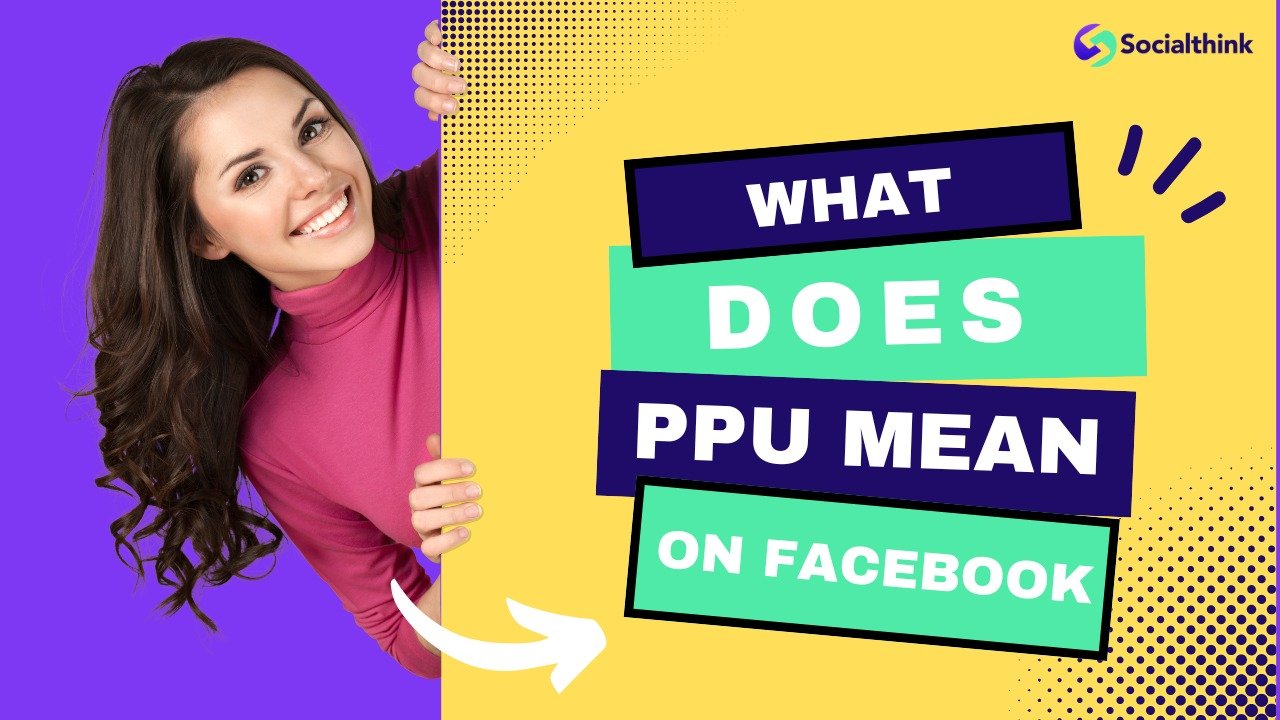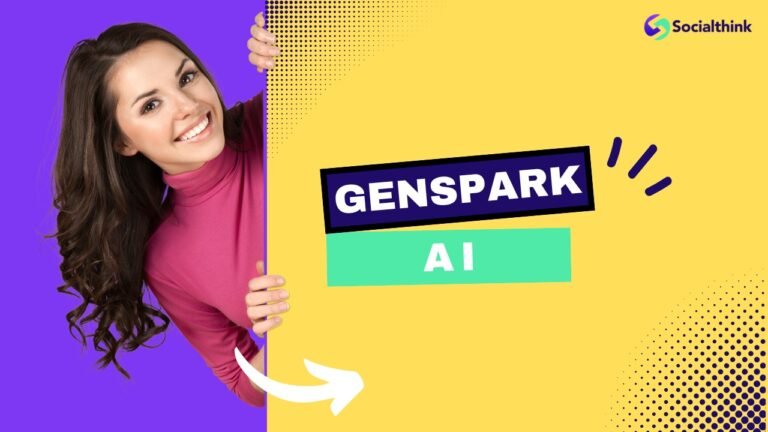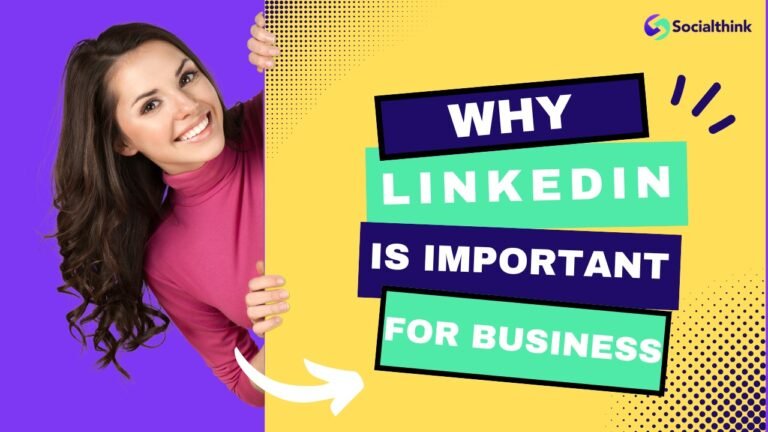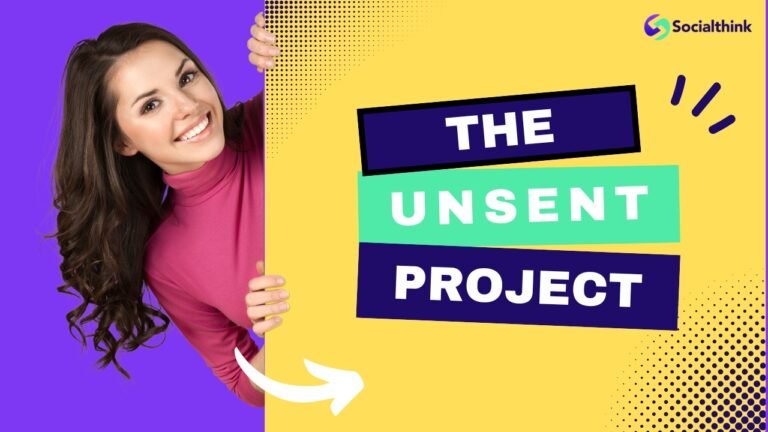What Does PPU Mean on Facebook?
Hey there! So, in the world of online marketplaces like Facebook Marketplace, you’ll come across a lot of acronyms and abbreviations.
One that often leaves people scratching their heads is “PPU.”
At Social Think, we’re all about helping businesses and individuals figure out social media.
In this guide, we’ll break down what PPU is all about, how it fits into online marketplaces, and what it means for buyers and sellers. Let’s dive in!
What is PPU on Facebook?

PPU stands for “Pending Pick Up” or “Pending Pickup.”
It’s a term commonly used in online marketplaces, particularly in Facebook Marketplace and Facebook groups dedicated to buying and selling items locally. When a seller marks an item as PPU, it means that a potential buyer has expressed interest in purchasing the item and is scheduled to pick it up at an agreed-upon time and location.
What Does PPU Mean On Facebook Or Facebook Marketplace?

On Facebook Marketplace, PPU is used to indicate that a particular item has a prospective buyer who has committed to purchasing it.
This helps other interested buyers know that the item is likely no longer available, saving them time and effort in inquiring about or attempting to purchase the item.
It is often used in conjunction with other terms like “sold,” “pending,” or “next in line.” These terms help provide clarity on the current status of a listing and manage expectations for both buyers and sellers.
What Does PPU Mean on Facebook Marketplace – Other Meanings
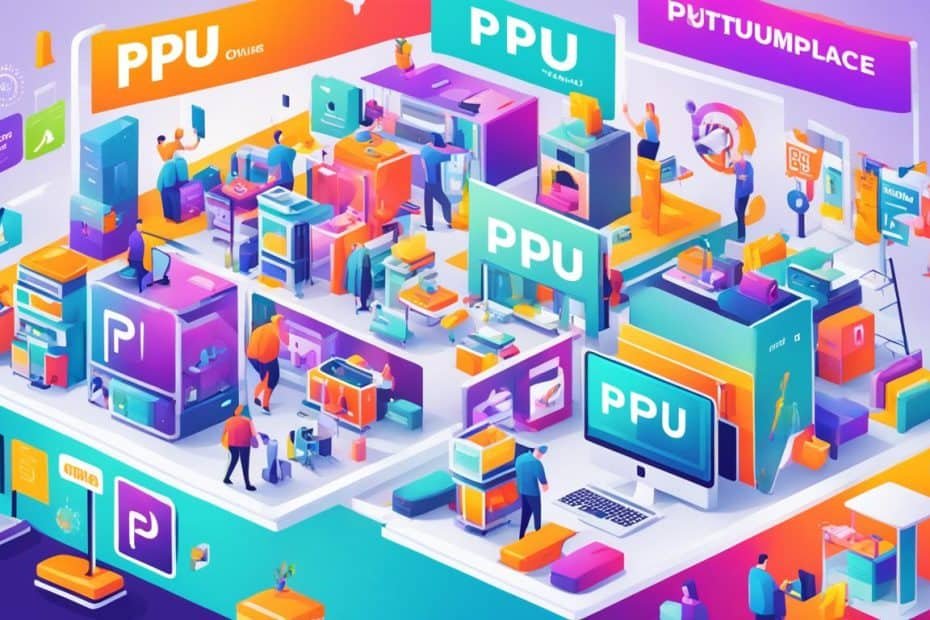
While PPU most commonly refers to “Pending Pick Up,” it can have alternative meanings in different contexts:
- Pay Per Use: In some cases, PPU can mean “Pay Per Use,” referring to a pricing model where users pay based on their usage of a product or service.
- Purchasing Power Unit: PPU can also stand for “Purchasing Power Unit,” an economic term that represents the amount of goods or services that can be purchased with a unit of currency.
However, in the context of online marketplaces like Facebook Marketplace, it almost always refers to “Pending Pick Up.”
The Role of PPU in Online Marketplaces
PPU is important in online marketplaces, especially where there are no clear payment and reservation systems. It acts as an informal reservation system. It lets buyers know that an item is reserved, even if they have not paid yet.
This simple acronym makes things clearer. It reduces future fights and confusion between buyers and sellers. It shows how online marketplaces work. Buyers and sellers need clear ways to share the status of a transaction.
Navigating the Acronym Jungle: Other Related Marketplace App Buying Terms Like OBO, ISO
Online marketplaces, especially those geared towards local transactions like Facebook Marketplace and Craigslist, are filled with acronyms and abbreviations. Terms like PPU, ISO (In Search Of), and OBO (Or Best Offer) are used to communicate quickly and efficiently
Understanding these terms is important for both buyers and sellers to navigate these platforms effectively. At Social Think, we help businesses and individuals decipher the acronym jungle and use these terms to their advantage.
What Does PPU Mean in Text in Comparison to Other Reservation Acronyms
PPU is just one of many acronyms used to indicate an item’s reservation status. Other common terms include:
- Pending: Indicates that an item has a potential buyer, but the sale is not yet finalized.
- Sold: Confirms that an item has been sold and is no longer available.
- Next in Line: Suggests that if the current pending sale falls through, the next interested buyer will have the opportunity to purchase the item.
While these terms are similar, PPU specifically implies that the buyer has committed to picking up the item in person at a designated time and location.
Impact of Acronyms Like PPU on Buyer and Seller Behavior
The use of acronyms like PPU can significantly impact buyer and seller behavior on online marketplaces.
For sellers, marking an item as PPU can help manage buyer expectations, reduce the number of inquiries about the item’s availability, and save time in communicating with potential buyers
For buyers, seeing an item marked as PPU can prevent them from getting their hopes up about purchasing an item that is likely no longer available. This can save them time and effort in reaching out to the seller or arranging for payment and pickup.
How Does PPU Differ From Other Pricing Models?
PPU, when used in the context of “Pay Per Use,” differs from other common pricing models:
- Subscription-Based: Users pay a recurring fee (monthly, annually) for access to a product or service.
- Flat Rate: Users pay a fixed, one-time fee for unlimited access to a product or service.
- Freemium: Basic features are provided for free, while premium features require payment.
In a PPU model, users only pay for what they use, making it a more flexible and cost-effective option for those who may not need frequent access to a product or service.
How Does PPU Work on Facebook?
PPU Pricing Structure
On Facebook Marketplace, PPU does not involve any specific pricing structure. It simply indicates that a buyer has committed to purchasing an item at the listed price or an agreed-upon price through negotiation
Accessing PPU Features
To mark an item as PPU on Facebook Marketplace:
- Go to your listing
- Click on the “Mark As Pending” or “Mark As Sold” option
- Select “Pending Pick Up” from the dropdown menu
This will update your listing to show that the item is PPU, notifying other potential buyers that it is likely no longer available.
Billing and Payment For PPU
Since PPU on Facebook Marketplace refers to an in-person transaction, billing, and payment are handled directly between the buyer and seller. Common payment methods for PPU transactions include cash, mobile payment apps like Venmo or PayPal, or personal checks.
Examples of PPU Features on Facebook
While PPU on Facebook Marketplace primarily refers to “Pending Pick Up,” Facebook does offer some features that use a “Pay Per Use” model:
- Promoted Posts: Businesses can pay to promote their posts to a wider audience on Facebook. They are charged based on the number of impressions or engagements the promoted post receives.
- Sponsored Messages: Brands can send sponsored messages directly to users who have interacted with them on Facebook Messenger. They pay for each message delivered.
- Other PPU Features: Facebook also offers other PPU features like boosted posts and click-to-message ads, where businesses pay based on the interactions their content receives.
Advantages of PPU For Facebook
- Generating Additional Revenue: By offering PPU features like promoted posts and sponsored messages, Facebook can generate additional revenue from businesses looking to expand their reach and engagement on the platform.
- Offering Flexibility to Users: PPU features allow businesses to pay for what they use, providing more flexibility and cost control compared to traditional advertising models.
- Monetizing Power Users: PPU features can help Facebook monetize power users, such as influencers or brands with large followings, who may not need to pay for a subscription but are willing to pay for specific actions or results.
Common Misconceptions About PPU
PPU is often misunderstood, even though it is common on Facebook.
- PPU is Not Limited to Facebook: While PPU is commonly used on Facebook Marketplace, it is not limited to this platform. Other online marketplaces, classified sites, and even garage sales may use PPU to indicate an item’s pending status.
- PPU Does Not Guarantee Sale Completion: Marking an item as PPU does not guarantee that the sale will be completed. Buyers can still change their minds or fail to show up for the pickup, leaving the item available for other interested parties.
Disadvantages of PPU For Facebook Users
- Additional Costs For Features: For businesses, using PPU features like promoted posts or sponsored messages can add up quickly, especially if they are not closely monitoring their spending or targeting the right audience.
- Potential For Overspending: Without careful planning and budgeting, businesses can easily overspend on PPU features, cutting into their overall return on investment (ROI) on the platform.
- Confusion Over Pricing: Some users may find the PPU pricing model confusing or difficult to predict, as costs can vary based on factors like audience size, engagement rates, and competition for ad space.
FAQ’s:
How is PPU Used on Online Marketplaces Like Facebook Marketplace?
On Facebook Marketplace, PPU is used to indicate that an item has a potential buyer who has committed to picking it up at a specific time and location.
Is PPU Similar to Other Reservation Acronyms?
Yes, PPU is similar to terms like “pending” or “sold,” but specifically implies that the buyer will be picking up the item in person.
Why is PPU Commonly Used in Less-Structured Marketplaces?
PPU is commonly used in less-structured marketplaces like Facebook Marketplace or Craigslist because these platforms often facilitate local, in-person transactions where pickup is the primary method of goods exchange.
Should You Use The PPU Abbreviation When Selling Items?
Using PPU when selling items can help manage buyer expectations, reduce duplicate inquiries, and save time in communication. However, it’s important to use the term accurately and update your listing if the sale falls through.
How Can Understanding PPU Impact Buyer and Seller Behavior?
Understanding PPU can help buyers avoid inquiring about items that are likely no longer available, saving time and effort. For sellers, using PPU can streamline communication and manage buyer expectations.
Can I Use PPU For Services or Only Physical Goods?
PPU is primarily used for physical goods that require in-person pickup. Services typically use different terms or acronyms to indicate availability or reservation status.
Is PPU Safe For Both Parties Involved?
PPU itself does not guarantee safety for either party. Buyers and sellers should still take precautions when meeting in person, such as choosing a public location, bringing a friend, or using secure payment methods.
How Do I Set Up a PPU Arrangement on Facebook?
To set up a PPU arrangement, communicate with the buyer to agree on a pickup time and location, then mark your listing as PPU using the “Mark As Pending” or “Mark As Sold” option.
Are There Alternatives to PPU For Local Transactions?
Alternatives to PPU for local transactions include shipping items directly to the buyer, using a third-party service for secure payment and delivery, or arranging a different method of goods exchange, such as meeting at a neutral location.
Conclusion
PPU, or “Pending Pick Up,” is a common acronym used in online marketplaces like Facebook Marketplace to indicate that an item has a committed buyer who will be picking it up in person.
Understanding PPU and other marketplace terms is essential for both buyers and sellers to navigate these platforms effectively, manage expectations, and communicate efficiently.
At Social Think, we provide businesses and individuals with the insights and strategies they need to succeed on social media.
Staying up-to-date on terms like PPU and understanding their impact on buyer and seller behavior can help you optimize your marketplace experience and achieve your goals, whether you’re buying or selling.

